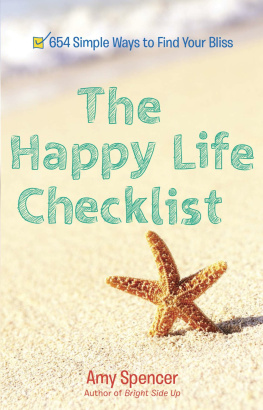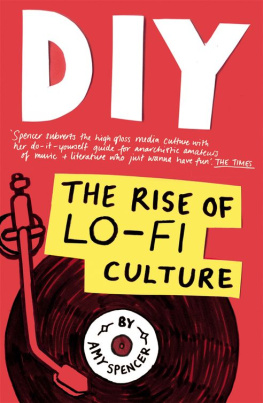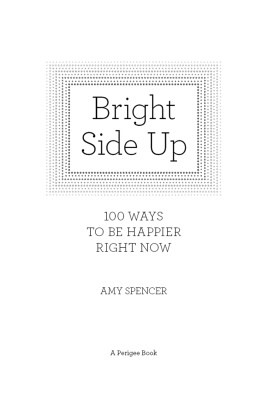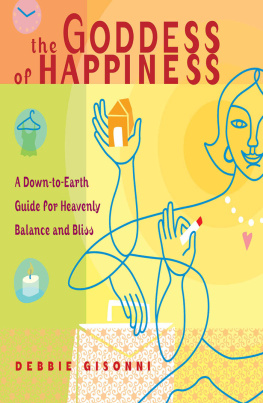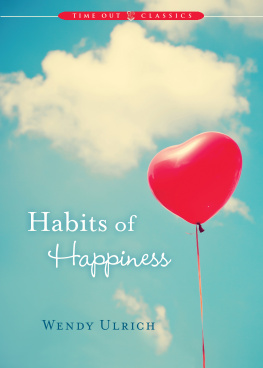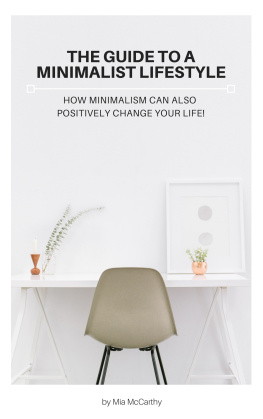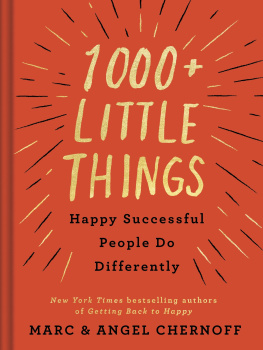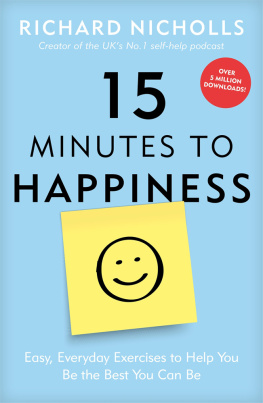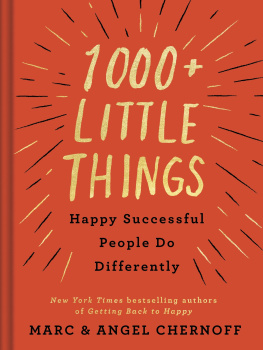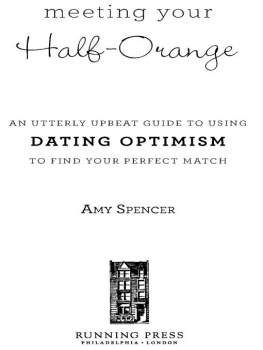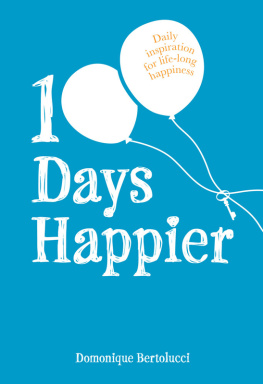INTRODUCTION
I was sitting in an Adirondack chair in my backyard on a Saturday afternoon, wearing my Panama hat and reading a good book in the sunshine. My husband walked up behind me and started rubbing my shoulders. It was just a few nice little squeezes, so I closed my eyes and breathed in the moment. I wanted to inhale those bright seconds of bliss, to take a mental snapshot in time, with a caption that would have read: This is happiness.
Mmmm, I said. Happy capture.
Happy what? he asked.
I dont know, I said. This is a perfect little burst of happiness. I want to capture and remember it. Life was giving me a little squeeze, and my heart was hugging it back.
And we all have opportunities to take in the small things like this every day; in fact, life is teeming with them: curtains billowing in the breeze through city windows, a sunlit surfboard on the sand, friends laughing, a fresh plate of handmade pasta, an architectural marvel, a puppy playing in the grass, a steaming cappuccino, a tangerine-colored taxi, cute kids leaping on a fluffy white bed, an antique book, a snowcapped mountain, a tropical island. Life provides us with instant snapshots of what happiness is every day. The only problem? We dont always see it.
It reminds me of the Washington Post experiment, about how much of lifes beauty we take in. On an early January morning in 2007, concert violinist Joshua Bell planted himself inside a set of doors at the Metro station in Washington, DC. He took out his violin, placed the open case in front of him for tips, and began to play Chaconne, from Bachs Partita No. 2 in D Minor, which Bell called, Not just one of the greatest pieces of music ever written, but one of the greatest achievements of any man in history. Bell was recorded by a hidden camera, so the newspaper could see how many people would stop to listen to this Grammy Awardwinning musician performing incognito.
It turned out, as writer Gene Weingarten discovered, of the more than one thousand people who passed by Bell in those forty-five minutes, only seven stopped to listenand one because she recognized him. If you watch the video posted online, youll see what so many of us do every day: people rushing past because they have a meeting to keep, a train to make, groceries to buy, people to see. Either they dont feel they have time to listen to a masterfully elegant violin performance, or theyre so focused on their destination, they dont even hear it.
So just like we might ask, If a tree falls in a forest but no one hears it, does it really make a sound? Ill throw out this one: If a day bursts full of potentially bright moments but you dont notice a single one of them, do they really count?
What Is a Happy Life?
If you could pick one big thing that you think would make you happier, what might it be? Ive been asking people that big question for eight months now and taking notes. Some things Ive heard:
A big kitchen with a huge island in the center.
A silver Porsche Boxster.
Ugh, losing all the weight I gained when I turned forty.
A vacation in one of those huts on the water in Fiji.
A partner in love. Someone in my life so I dont feel like a complete reject. Anyone? Anyone?
One hundred million dollars. Wrapped around a kitten.
We all have our own vision of how to reach that crest of happiness, where we can look out over the vista of our life and say, finally, This is it. Im happy. And it often includes the types of things mentioned abovebig milestones we dream of achieving. And those things will make us happy for a while. But as research in positive psychology has shown, they actually wont keep us happy for very long.
We can thank our tendency toward habituation or hedonic adaptation for that. The problem is, as soon as we get that one big thing, we start to get used to it. We appreciate our new car for as long as it retains that new car smell, but climbing into the front seat eventually becomes such a regular habit, it no longer impresses us. We human beings are simply very good at adjusting to our circumstances. Thats beneficial when were adapting back to lifes set point after a breakup, an illness, or a job losswhen something bad has happened to us. But we also get used to the good things, too. It doesnt matter how stunning something is the first time we see it; once it becomes a habit, we simply start tuning it out. So if we spend our lives only reaching for the next big thing ahead of us, we will never feel truly happy.
In fact, as research by positive psychologists has found,

